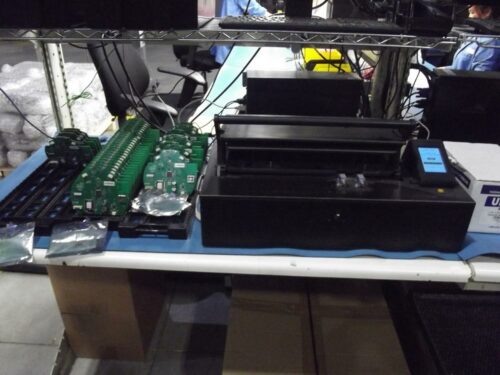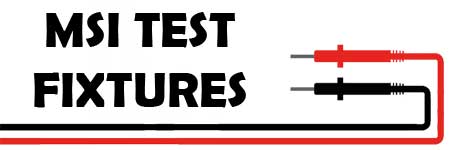 A multi-stage test fixture is a specialized testing system used to assess the performance, quality, and functionality of complex electronic components or systems at various stages of their development or manufacturing process. This type of fixture incorporates multiple testing steps or stages, each designed to evaluate specific aspects of the product’s characteristics, functionality, or reliability.
A multi-stage test fixture is a specialized testing system used to assess the performance, quality, and functionality of complex electronic components or systems at various stages of their development or manufacturing process. This type of fixture incorporates multiple testing steps or stages, each designed to evaluate specific aspects of the product’s characteristics, functionality, or reliability.
Key features and aspects of a multi-stage test fixture include:
1. Sequential Testing: Multi-stage test fixture involves a series of interconnected testing stations or modules, each designed to execute specific tests. The product moves through these stages sequentially, allowing for comprehensive testing.
2. Functional Segmentation: Different testing stages within the fixture can focus on various aspects of the product, such as electrical functionality, mechanical integrity, thermal performance, or environmental resistance.
3. Progressive Testing: As the product advances through the testing stages, the level of complexity or stringency of the tests can increase. This approach helps identify issues step by step, leading to more efficient troubleshooting.
4. Integration Testing: In some cases, multi-stage fixtures can simulate integration scenarios, where components or subsystems are tested together to ensure their compatibility and functionality as part of the larger system.
5. Diagnostics and Analysis: Each stage of the fixture may include built-in diagnostic tools and data analysis capabilities to capture and interpret test results, enabling rapid identification of issues.
6. Modularity: Multi-stage fixtures often feature modular design, allowing individual testing modules to be customized, upgraded, or replaced as needed.
7. Customized Testing: The design of each stage can be tailored to match the specific requirements of the product being tested, enabling focused evaluations based on the product’s unique characteristics.
8. Efficiency and Throughput: Multi-stage test fixture enable comprehensive testing without needing to move the product between separate testing systems. This can lead to improved testing efficiency and reduced handling time.
9. Quality Control: Multi-stage testing improves overall quality control by detecting defects early in the development or manufacturing process and preventing issues from progressing to later stages.
10. Product Optimization: Insights gained from multi-stage testing can contribute to product optimization, helping manufacturers refine designs, manufacturing processes, and quality assurance protocols.
Multi-stage test fixtures are particularly valuable when dealing with complex electronic systems, such as automotive control units, aerospace avionics, or industrial automation components. By allowing thorough evaluation at different stages, these fixtures enhance the quality and reliability of the final product and contribute to higher levels of customer satisfaction.
